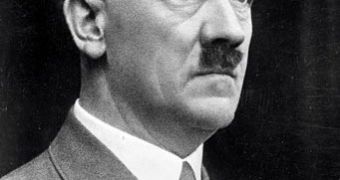The Internet is a paradox, a medium of controversies. With a rapid ascension over merely half a century, it is often regarded as a blessing and a curse at the same time, with some even hypothesizing over the possibility of its becoming alive. Currently, it is a part of everyday life, ensuring rapid communication across continents, a viable medium for conducting business and research, but also for piracy, illiteracy, attacks and the like. Still, the winner of a Nobel prize for literature believes it would have enabled the public opinion to frown upon Hitler's plans if it had been available at the time.
During his lecture at the Swedish Academy, following the winning of the Nobel, the 68-year-old French writer Jean-Marie Gustave Le Clezio, author of "Terra Amata," "The Book of Flights" or "Desert," dares to venture his vision of the impact that the Internet would have had on the fate of World War II. Basically, it would have prevented it, believes Le Clezio.
In his own words, as quoted by the Associated Press, subsequently cited by MSNBC, the writer says, "Who knows, if the Internet had existed at the time, perhaps Hitler's criminal plot would not have succeeded – ridicule might have prevented it from ever seeing the light of day".
Further, though, Le Clezio pointed that owning a computer is still a luxury many people in the developing parts of the world could not afford, also stressing that fighting illiteracy and hunger should be mankind's "two great urgent tasks". "Literacy and the struggle against hunger are connected, closely interdependent," stated the traveling author during his speech. "One cannot succeed without the other. Both of them require, indeed urge, us to act," he shared, adding that "In Africa, Southeast Asia, Mexico, or the South Sea Islands, books remain an inaccessible luxury".
Who knows, if access to the Internet, books, as well as to better living conditions were ensured to people that could barely afford them, maybe science, technology, health, politics and other similar areas would receive an increased feedback from the respective population and, why not, the rise of dictators and massive-scale conflicts could be prevented.

 14 DAY TRIAL //
14 DAY TRIAL //